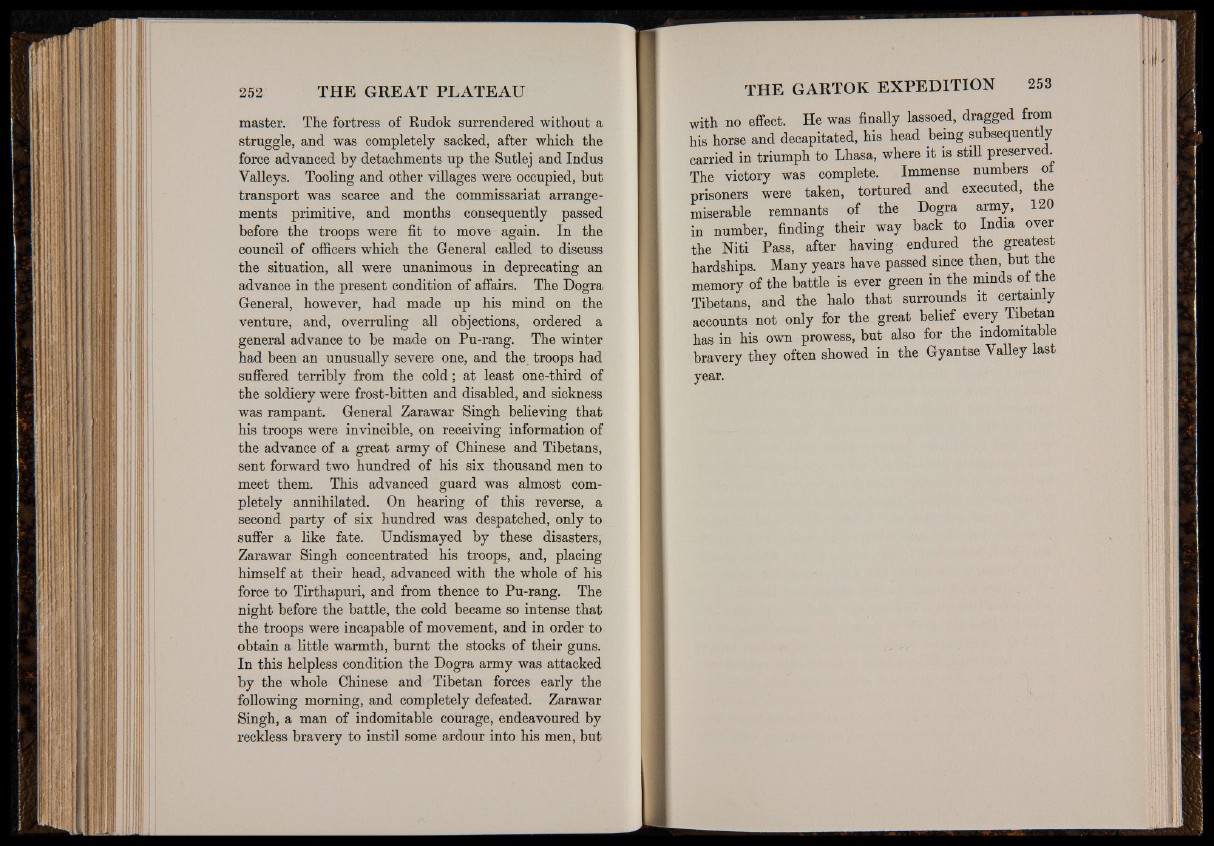
master. The fortress of Rudok surrendered without a
struggle, and was completely sacked, after which the
force advanced by detachments up the Sutlej and Indus
Valleys. Tooling and other villages were occupied, but
transport was scarce and the commissariat arrangements
primitive, and months consequently passed
before the troops were fit to move again. In the
council of officers which the General called to discuss
the situation, all were unanimous in deprecating an
advance in the present condition of affairs. The Dogra
General, however, had made up his mind on the
venture, and, overruling all objections, ordered a
general advance to be made on Pu-rang. The winter
had been an unusually severe one, and the troops had
suffered terribly from the cold; at least one-third of
the soldiery were frost-bitten and disabled, and sickness
was rampant. General Zarawar Singh believing that
his troops were invincible, on receiving information of
the advance of a great army of Chinese and Tibetans,
sent forward two hundred of his six thousand men to
meet them. This advanced guard was almost completely
annihilated. On hearing of this reverse, a
second party of six hundred was despatched, only to
suffer a like fate. Undismayed by these disasters,
Zarawar Singh concentrated his troops, and, placing
himself at their head, advanced with the whole of his
force to Tirthapuri, and from thence to Pu-rang. The
night before the battle, the cold became so intense that
the troops were incapable of movement, and in order to
obtain a little warmth, burnt the stocks of their guns.
In this helpless condition the Dogra army was attacked
by the whole Chinese and Tibetan forces early the
following morning, and completely defeated. Zarawar
Singh, a man of indomitable courage, endeavoured by
reckless bravery to instil some ardour into his men, but
with no effect. He was finally lassoed, dragged from
his horse and decapitated, his head being subsequently
carried in triumph to Lhasa, where it is still preserved
The victory was complete. Immense numbers of
prisoners were taken, tortured and executed, the
miserable remnants of the Dogra army, 120
in number, finding their way back to India over
the Niti Pass, after having endured the greatest
hardships. Many years have passed since then, but the
memory of the battle is ever green in the minds of the
Tibetans, and the halo that surrounds it certainly
accounts not only for the great belief every Tibetan
has in his own prowess, but also for the indomitable
bravery they often showed in the Gyantse Yalley last
year.